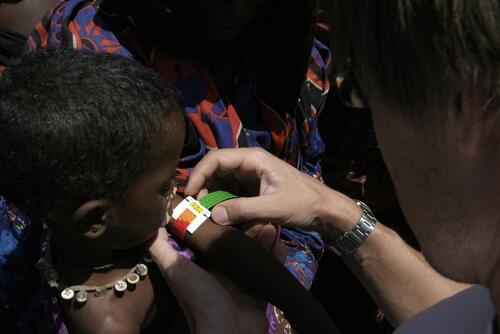During the 1990s, MSF teams made a bitter observation: we were failing to treat some of our patients suffering from infectious diseases, while in developed countries, remarkable progress was being made in the field of health. Two decades on, medicines in developing countries are still either too expensive, aren't suitable to be used in many of the contexts in which we work (for example, in hot, humid conditions or where there's a lack of electricity), or simply don't exist for the diseases we need to treat.
In 1999, we launched the Campaign for Access to Essential Medicines, now known as the Access Campaign. Its mission focuses on three areas: overcoming barriers to access to essential medicines, stimulating research and development for neglected diseases, promoting health exceptions to global trade agreements.
In 2003, MSF joined several research institutes, including the Institut Pasteur, to create the Drugs for Neglected Diseases initiative (DNDi), a non-profit research and development organisation engaged in research and development of new treatments for neglected diseases.

Food aid basket missing critical ingredients

New priorities, new challenges

New York Times: Instant Nutrition

People with AIDS in southeast Asia needlessly becoming blind due to a neglected virus

MSF presentation to the IGWG on the need for development of TB drugs and techniques

UN health talks could lead to new ways of developing urgently needed drugs and diagnostics

Food is not enough: Without essential nutrients millions of children will die

Food is not enough - Without essential nutrients, millions of children will die








